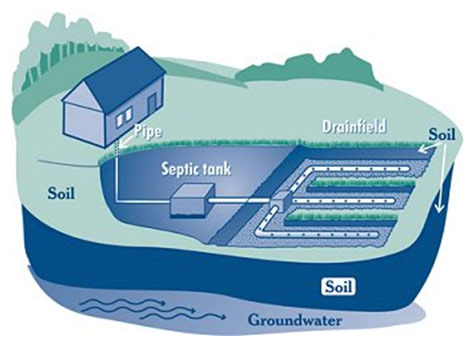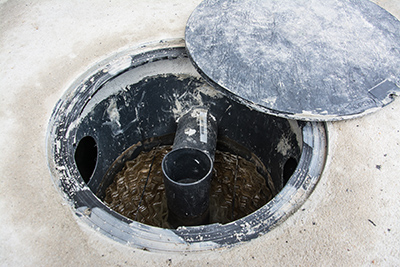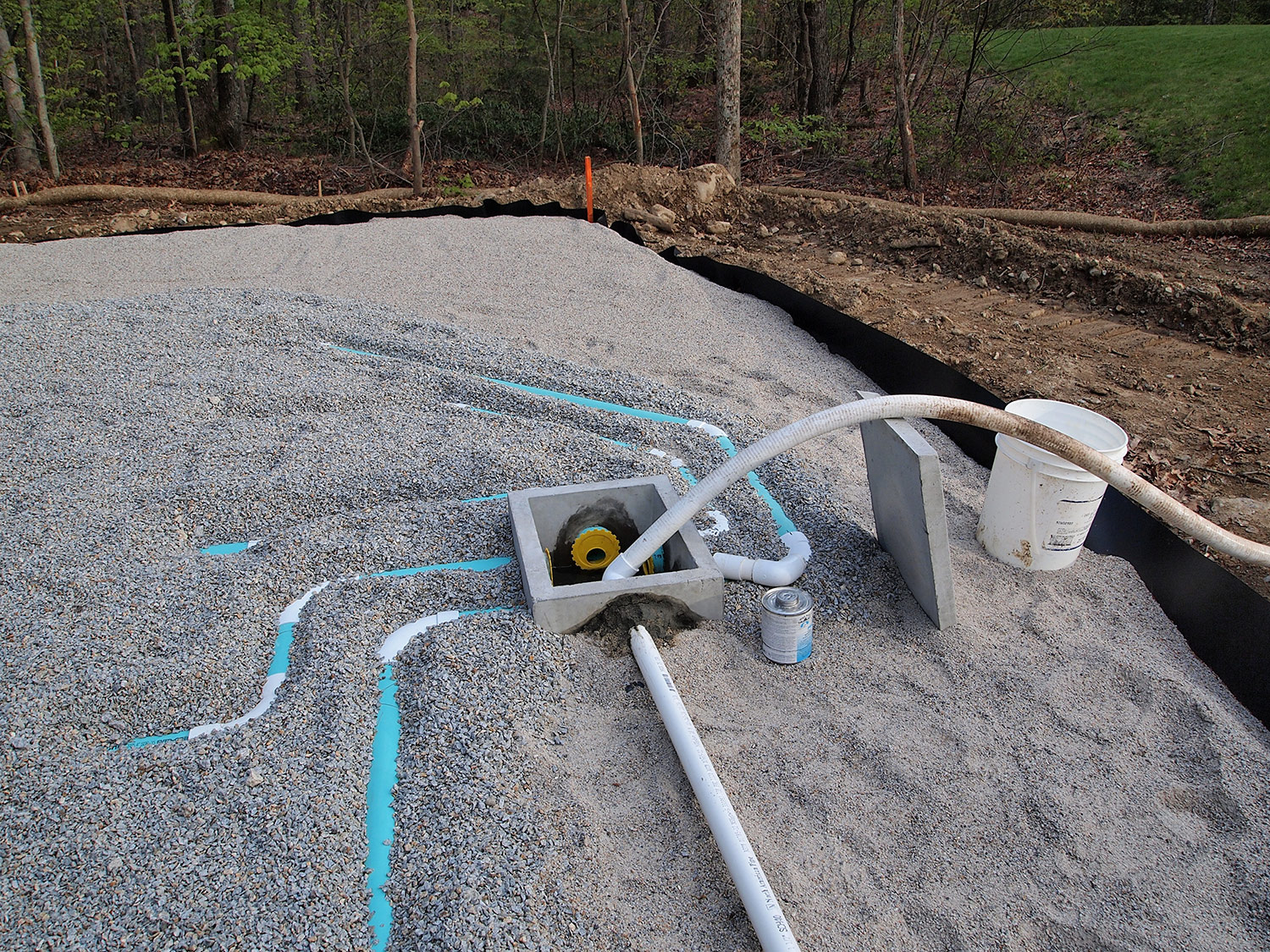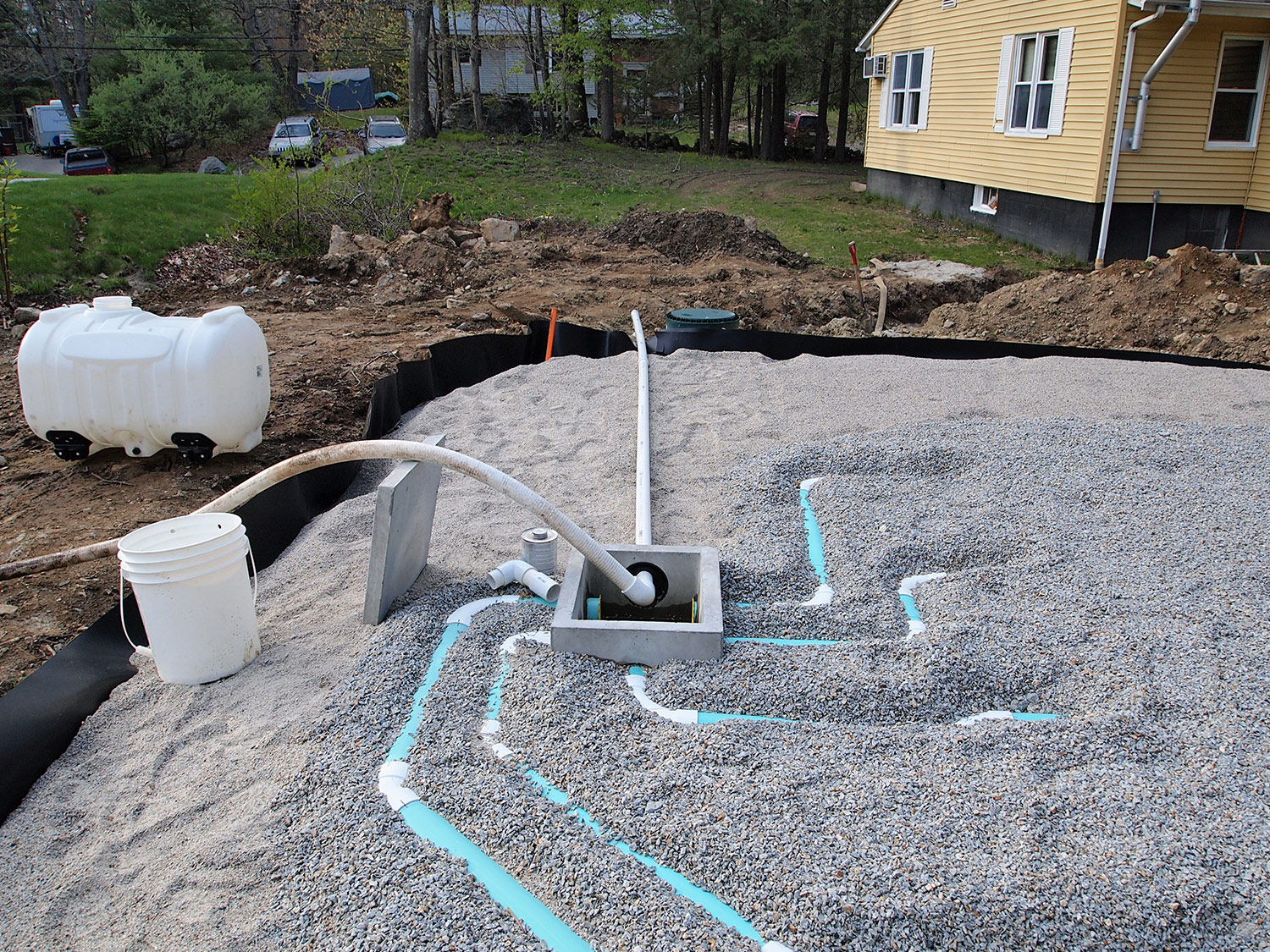
Lack of snow cover and dropping temperatures can spell trouble for homeowners with septic systems.
Snow helps to insulate septic systems and keep them from freezing. Unfortunately, a lot of our snow cover has melted and temperatures across the state are dropping.
Here is a list of seasonal tips for homeowners on how to prevent septic system freeze-ups as the winter season progresses and how to deal with them should they occur:
- Place a layer of mulch 8 to 12 inches thick over the pipes, tank, and soil treatment system to provide extra insulation. This can be straw, leaves, hay or other loose material that will stay in place and not become compacted. This is particularly important for new systems that were installed so late in the year that vegetative cover didn't get established. However, if the system is currently frozen, don’t add mulch now; it will delay thawing in the spring.
- Use water—the warmer the better—if you’re worried your system is starting to freeze. Spread out your laundry schedule so you run one warm/hot load a day. Use the dishwasher and take hot baths. Do not leave water running all the time—this will overload the septic system.
- Going away for an extended period? Have someone use warm water in the home regularly or pump out your tank before leaving.
- Fix any leaky plumbing fixtures or appliances in your home. This will help prevent freezing problems and help your system perform better all year.
- Keep all vehicle, animal, and people traffic off the system. This is a rule to follow all year as compacted snow and soils cause frost to go down deeper and faster. Pay special attention to the area between the house and tank.
- Keep an eye on your system. If any seeping or ponding occurs, contact an onsite professional to help determine the cause and remedy.
- Add more insulation to your system. This could include replacing pipe with insulated pipe, adding expanded foam panels over septic tanks, or adding more soil cover.
If your system freezes
If your septic system freezes, Morse Engineering and Construction.
Other methods used to fix a freezing problem include adding heat tape and tank heaters. Cameras can be sent down pipes to determine where freezing is occurring. If the soil treatment system is full of ice, or there is evidence of leaking, skip trying to thaw the lines leading to the treatment area as it cannot accept liquid until the area thaws in spring.
If it’s not feasible to correct a problem, the only option is using the septic tank as a holding tank until the system thaws naturally. Contact a pumper to empty the tank when it starts to fill up. In this situation, reduce water use by limiting the number of toilet flushes, taking short showers, and using the dishwasher at full capacity.
For more information, contact Morse Engineering and Construction.




